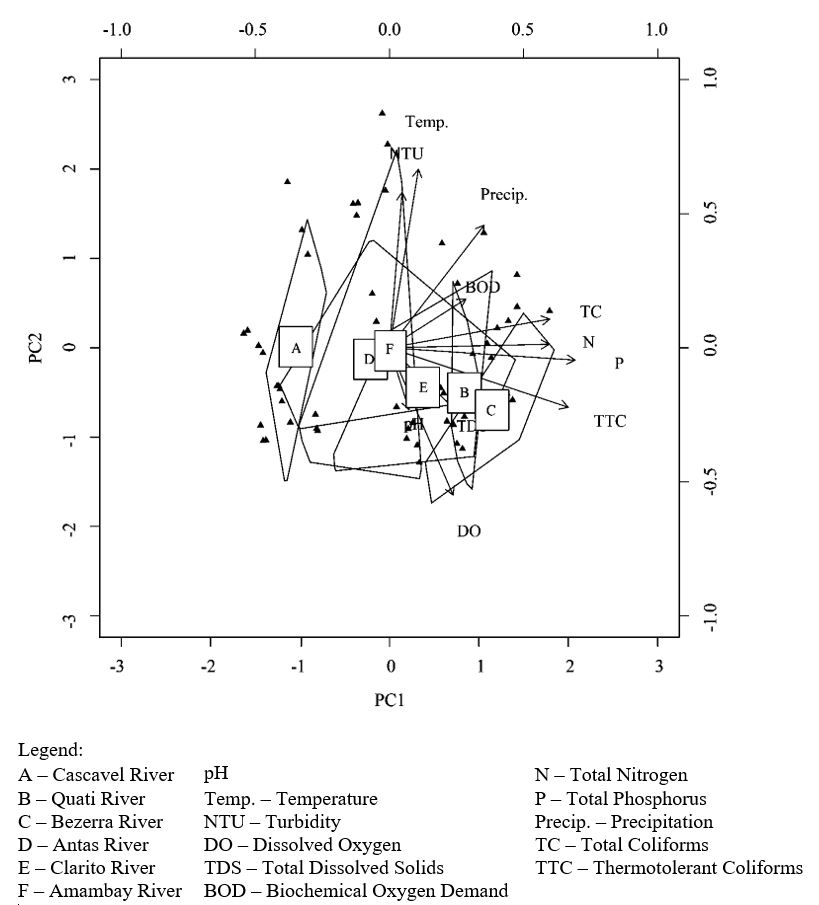Abstract
Aquatic ecosystems of urban rivers are contaminated through waste disposal, which poses a public health problem. The objective of this research was to evaluate the quality of water used for recreation and public supply of six rivers in the city of Cascavel - Paraná, including Cascavel, Quati, Bezerra, Antas, Clarito and Amambay. Samples were collected every 4 months in 2017, and their physicochemical and microbiological parameters, as well as resistance profiles of strains of Escherichia coli to antimicrobials distributed by pharmacies of the primary healthcare network, were evaluated. Parameters such as water temperature, turbidity, total nitrogen, total phosphorus, total coliforms and thermotolerant coliforms showed significant differences. The allowed limit for thermotolerant coliforms, which was set by National Environment Council, Resolution 357/2005, was exceeded in all of the six analyzed rivers. It was determined that 48.1% of E. coli strains showed resistance to nine antimicrobial tested. The highest levels of resistance were found for ampicillin (27.7%), tetracycline (27.7%) and amoxicillin (24.0%). The results of this study contribute to the understanding of the hazards associated with the contamination of springs in urban centers with wastewater containing resistant bacteria. Therefore, recovery work is necessary in these areas because of the importance of these water sources for the entire western region of Paraná state.
Keywords:
antimicrobial; bacteria; coliforms; contamination; sewage

 Thumbnail
Thumbnail
 Thumbnail
Thumbnail
 Thumbnail
Thumbnail


